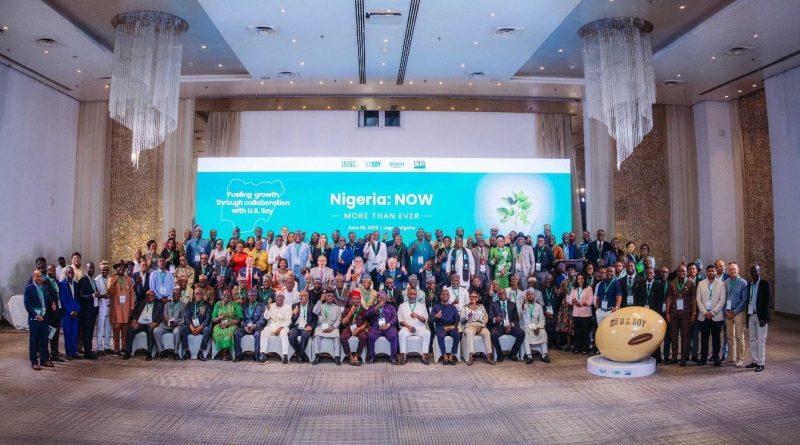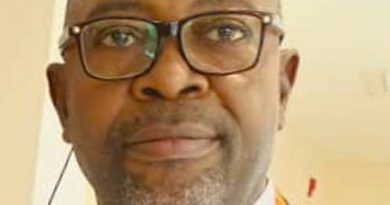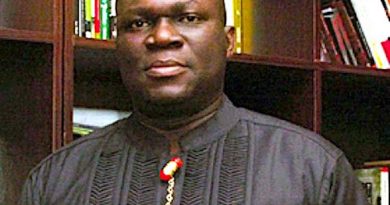Corridors to Trade can support Nigeria’s protein needs
The US Soybean Export Council hosted its signature “Nigeria: NOW” conference in Lagos this week, bringing together stakeholders across the government and private sectors, including poultry producers, nutritionists and more. Participants dove into discussions about addressing Nigeria’s protein gap, trade and economic growth.
Speaking at the event, Acting US Consul General, Lagos, Nigeria, JoEllen Gorg emphasized, “The US Soybean Export Council’s Nigeria: NOW conference marks a pivotal milestone in creating a pathway for mutual prosperity and shared economic success. By addressing Nigeria’s protein gap, fostering innovation, and promoting best practices, the US Soy industry is helping to build a resilient agricultural sector in Nigeria, ensuring long-term food security and economic stability.”
She added, “We are enthusiastic about the opportunities arising from the collaboration between USSEC and the US Mission in Nigeria. This partnership is crucial in helping export-ready US companies build business relationships with Nigerian agribusinesses, training Nigerians in new agricultural practices, and promoting the use of US soy in Nigeria’s feed and food industries.”

Participation by high-level Nigerian stakeholders, including former President, Chief Olusegun Obasanjo, Grand Commander of the Order of the Federal Republic; Engr. Seyi Makinde, Executive Governor of Oyo State; and Abisola Olusanya, Honourable Commissioner for Agriculture & Food System, Lagos State, emphasised the opportunity for greater collaboration between US Soy and Nigeria.
With a population of over 236 million and growing, Nigeria’s protein consumption per capita remains low at only 45.4 grams per person per day compared to the FAO’s minimum recommended intake of 60 grams. The global average is around 64 grams. While Nigeria grows soybeans domestically, demand significantly outpaces supply. The USDA Foreign Agricultural Service estimated Nigeria’s local production at around 1.15 million metric tons for the marketing year (MY) 2023/24, with the animal feed sector accounting for the majority of its use.
As a result of the demand-supply mismatch this year, Nigeria imported 62,100 metric tons of soybeans from the US after a pause of six years. This renewed access offers a promising opportunity for deeper collaboration between U.S. Soy and Nigeria.
“Trade is vital to the global economy and, more importantly, to local economies,” added Jim Sutter, USSEC CEO. “US Soy is at the forefront of collaborating with its partners as a reliable supplier.”
Robert Alpers, a generational US Soy farmer and United Soybean Director, echoed this, “I’m proud to be playing my role in helping to feed the world sustainably. As US Soy farmers, we are committed to ensuring we produce more using fewer resources and reducing our environmental footprint.”
By strengthening relationships, building trust, and leveraging comparative advantage, Nigeria and US Soy can achieve mutually beneficial economic growth and a protein-secure future.



Support PREMIUM TIMES’ journalism of integrity and credibility
At Premium Times, we firmly believe in the importance of high-quality journalism. Recognizing that not everyone can afford costly news subscriptions, we are dedicated to delivering meticulously researched, fact-checked news that remains freely accessible to all.
Whether you turn to Premium Times for daily updates, in-depth investigations into pressing national issues, or entertaining trending stories, we value your readership.
It’s essential to acknowledge that news production incurs expenses, and we take pride in never placing our stories behind a prohibitive paywall.
Would you consider supporting us with a modest contribution on a monthly basis to help maintain our commitment to free, accessible news?
Make Contribution
TEXT AD: Call Willie – +2348098788999







